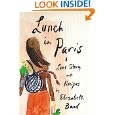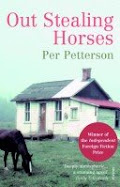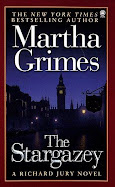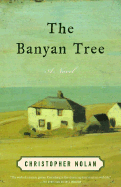Esther Freud's Hideous Kinky, published as a first novel in 1992, is as charming as it is often alarming. A narrative of one family's trip by caravan, train and trek, through Europe and into North Africa, the story is told through the eyes of the youngest of two sisters, who is five at the start.
Set in the 1960's, as the story unfolds, the reader meets the two sisters, their mother and an evolving cast of characters they encounter along the way. We learn that the mother and the girls are English, that they've left home in search of adventure. Though there is a father, he is out of the picture, save for sending money and Christmas gifts to the girls.
Though the mother is a talented seamstress, she appears without further credentials, and makes her way through various adventures either by her wits or with the help of a young Arab man, Bilal. It is Bilal, whom her youngest daughter pointedly asks to be her father, at one point. Largely without resources, the mother and her girls survive from day to day, and she spends a great deal of time worrying whether or not money from England will present itself.
For his part, Bilal also survives by his wits, acrobatic tricks and business schemes, which fall flat, as he is unable to train the narrator of this story to effect more than a handstand. A growing attraction to Sufism compels the girls' mother apart from Bilal as she goes to another town in search of a mystic with whom to broaden her spiritual horizons.
At this juncture, the oldest daughter, Bea, all of eight, announces she's staying put. Headstrong, Bea craves the stability of school and home, as does her younger sister, who dreams of mashed potatoes. Their wandering, self-preoccupied mother, meanwhile, remains oblivious to these needs.
Leaving Bea with an expatriate couple, her mother and the young narrator in this book set out, eventually making their way to yet another town by train, hitch hiking and walking until they find the desired Sufi colony. Gone for weeks on end, growing penury and the event of Bea's birthday finally forces their return to Marrakesh.
Alarmed to learn that Bea is no longer where she left her, the reader finally sees panic set in as her mother searches, eventually locating Bea at a school for children with polio, which is run by yet another ex pat. Meeting her eldest in the midst of her birthday celebration, an event laden with sandwiches, fruits, cake and lemonade, Bea's mother notes a cold reception.
Returning to their previous hotel and its diverse inhabitants, the girls, their mother and Bilal find themselves in dire straits monetarily. It is then that Bilal composes a letter of flourishing prose, exhorting his rich Islamic brethren to show charity and kindness to this English woman. Instructing her to take the letter to the best merchants and others, the girls' mother is thus reduced to begging.
While one would think that this mother would then see sense and return to England, it is not until Bea evidences a nasty gum infection and is taken to see an ex-pat known as Auntie Rose, that the tide turns. Though Rose confirms a gum infection and shows Bea how to gargle with warm water and salt, she is neither doctor nor dentist, advising the girls' mother to simply get them home.
Finally obtaining medication from a doctor, Bea's infection clears, and plans are made to return to England. In a poignant ending, Bea climbs into a barren luggage rack, softly chanting the words hideous kinky to herself as the narrator of this story decides to stay seated with their mother, in case she should suddenly drop her plans to go home, exiting instead at one of the train stops.
While I enjoyed the perspective and narration in Freud's novel, I often found myself wondering what the girls' mother was thinking, first carting them across Europe in a broken down caravan driven by her married boyfriend, while his wife in the back doesn't speak. The only words emerging from her almost catatonic silence are 'hideous kinky', which becomes a soothing mantra for the children as the twists and turns of this otherwise delightful read become too confusing.
The use of the youngest child as narrator in this book provides a comedic, innocent foil against which the restlessness, rootless wandering and spiritual dabbling of her mother contrast sharply. One wonders about the "Daddy in England," whose presents appear at Christmas, the boyfriend John, who leaves with his fragile wife as the others depart for Morocco via ferry from Spain, all of the prostitutes at their hotel in Marrakesh who steal a friend's baby's nappies and other things from them, and the mother's subsequent relationship with an otherwise religious Muslim, whom the narrator claims as her father. The plethora of characters they meet on their various adventures also stand out against the innocence of her narration, sometimes to an alarming degree. The mother's naivete in leaving Bea behind, is but one of many examples of this.
Another is her almost constant penury. Who takes children on a trip with no money and no plan as to how to provide for them? Who makes no plans for a child's education, leaving it to an eight-year-old to announce that she was going to school and needed a uniform? Given that the 60's were an era of hippies and 'free love', some but certainly not all of their mother's preoccupation and longing for adventure, was understandable, but these children seemed more like props on her stage, as did Bilal and John.
The fact that this book is loosely autobiographical is interesting. Freud, an actress turned novelist, appears open to adventure in this book. One wonders whether she is the young narrator of this tale or her more rebellious older sister.
Adapted into a 1998 film of the same title, this book is a refreshing read. As I have yet to see the film, starring Kate Winslett, I've no idea how the movie compares to the book. Has anyone else seen this?
Until Next Time...
Sunday, October 11, 2009
Subscribe to:
Post Comments (Atom)












I've been lax in getting this book from the library since I've been trying to finish some other books. I'll read it next month after next months book. How's that? But thanks for the run through.
ReplyDeleteHello e and Jo!
ReplyDeleteSorry to be so long in responding to e's excellent synopsis- I have only just finished the story.
I thought the way the author told the story through the eyes of a 5 year-old was very clever. As you say, e, it made the story charming and alarming. The child's mother, whilst she obviously loved her children, was definitely living in her own headspace- and her dubious parenting, such as allowing the girls titbits of cannabis biscuits, is worrying! As the narrator observes, her mother 'was the only person I knew who could turn off their ears like shutting an eye'. The mother seems quite oblivious to her daughters fears at times- and the little daughters take it largely in their stride, talking matter-of-factly about 'mother's adventures' and taking it upon themselves to protect her- such as when the youngest child sleeps next to her mother, in the Sufi commune , with her hands around her mother's neck to protect her from 'the Black Hand'. The children dream of mars bars and long for the embarrassment of their mother putting lipstick on whilst on the top of a bus, rather than the embarrassment of her unrolling her prayer mat to pray in the middle of the street. The children, although competitive towards each other, have an endearing bond together, such as when the younger child tells Bea endless stories to comfort her in her illness.
Bea's resilience and intelligence is admirable- she manages to survive alone in Marrakech for weeks- and she seems to exploit the whole experience to her benefit- by learning Arabic for example. Her younger sister's desire to have a father figure is heart-breaking and one only hopes that their mother is able to start seeing her daughters' needs when they eventually return to England. They were lucky to survive the whole experience with only a gum infection- they could have succumbed to much worse. Although the travelling would be a formative experience for both the girls, they are never far from the threat of danger- such as when they witness the murder of The Fool- something they keep to themselves.
I also wondered what prompted this mother to take her children off in this way- but in the sixties this alternative lifestyle was quite the fashion. We all need a spiritual awakening and to examine our place in the cosmos- in some ways this sort of exploration is no longer available to us as the world has lost so much of its innocence and become a much more cynical place.
In the end I think the mother, who has a generous heart, was naive- evidenced by the way her gifts of new clothes for the street children were soon kept by their mothers for other purposes.
I really enjoyed this book; I would have liked to have known how the experience affected the children into adult life. Judging by their ability to steer their mother safely through Morocco, I feel sure they grew up to be very capable adults!
I saw the movie and enjoyed it quite a bit, although I haven't read the book so can't help with a comparison. My very most favorite scene is where the camera stays, at mid-distance, on the younger girl sitting on the step outside their room...somewhere...trying to tie a turban atop her head. The turban(if that's the right term in this case)is nearly as big as she is, and her efforts are charming and hilarious.
ReplyDeleteI don't really remember how it ended, but I do remember coming away from it with a good feeling. I liked it, and am gratified to learn that it was based on a book, which I must now surely look for.
This is my first visit to the Virtual Book Club. I believe I'll be back for more.
Thanks for your comment A.Decker- I am just going to have to watch the film now- sounds entrancing. kate Winslet is one of my favourite actors. Book v. Film is always a good discussion.
ReplyDeleteYou are always welcome here, please read along from the titles on the side and feel free to suggest any. We tend to post towards the end of the month on the 'book for the month'.
Any ideas for the new year or has everyone given up???
ReplyDeleteI'll check back...I've a couple of ideas.
I saw the movie and it was not my cuppa. Never read the book.
ReplyDeleteIt's my first time here, and I've enjoyed my visit. You all have a wonderful concept. I've participated in book clubs before and felt a bit intimidated by the more outspoken members. Here, everyone gets a chance to speak her piece. Thanks for making me aware of some interesting reading prospects. I have a question though: Why do you not provide a link to Amazon or another commercial site with each selection on your sidebar so that visitors can purchase if they want to?
ReplyDelete